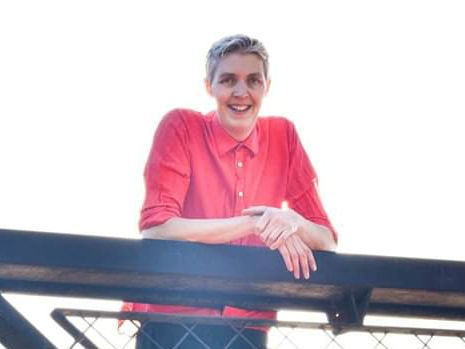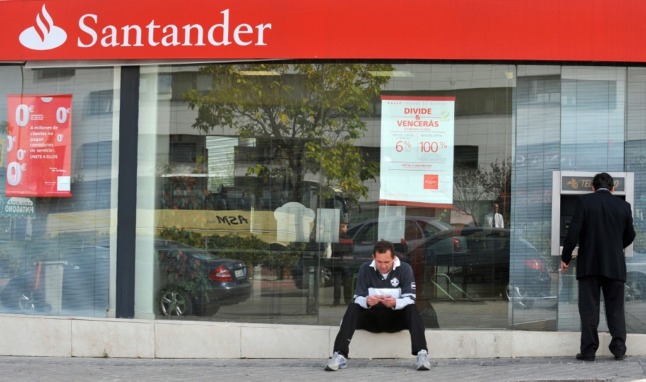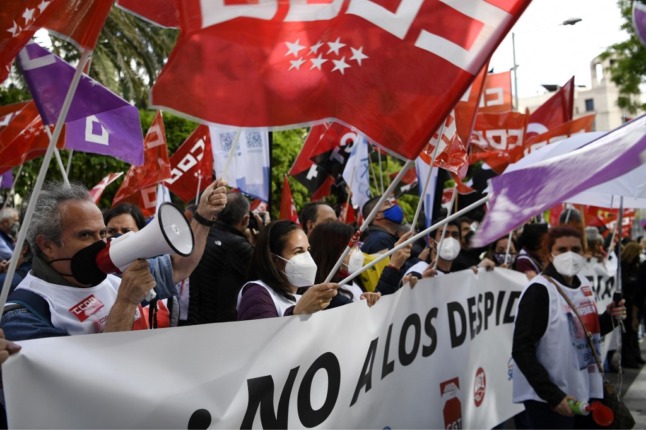LIFE IN SPAIN
My Spanish Story: ‘Madrid taught me to follow my passions and dream big’
After 15 years living in Madrid, Dublin-born comic Dominic Anglim is upping sticks and moving to Berlin. Here he reflects on how Madrid has changed, and how the city has changed him. And why Spain will always have a place in his heart.
Published: 12 November 2018 10:08 CET

After 15 years Dominic Anglim is leaving Madrid. Photo: D. Anglim
Many moons ago, we packed up our life in Ireland and bought a one-way ticket to Spain.
I had just gotten my TEFL certificate and even though I'd never taught a class in real life, I was blindly optimistic. Madrid, back in '03 was a very different place. For one thing, you could smoke cigarettes everywhere! The metro platforms, the metro, (although I think technically it wasn't allowed there) the bank & even the hospitals!
Teaching work was slow to begin with, so I'd spend my days in locotorios, searching for call center jobs where English wad required. No joy though.
Eventually I began handing out flyers for Sala Joy, in Sol. Not because it was a joyous activity, but because at €9 per hour, it was more than I would make staying home, sleeping. The park by the river didn't exist yet and the Matadero was just a group of derelict buildings.
In those days, we spent our weekends in Retiro, playing frisbee and watching the sunset to live drumming sessions by the lake. Madrid was seducing us. I only spoke basic Spanish back then, but that was fine, because people were friendly and that made it easier to get by. And with what seemed like blue skies everyday and warm open people, life passed by pretty quickly.
Things I won't miss…
The bureaucracy!
Spain's stance on bull fighting!
Dog poo in the streets! No, that is something I've seen a lot less of over the years thankfully.
Overall though, I love this country.
Now that the time has come to leave, I'm reflecting on everything I will miss and what pearls of wisdom I'm taking with me.
Pearls of Wisdom
The siesta.
I love siestas. If you break the word down, it's Si, Esta or Yes, that. Whether it be a 20 minute power nap or a two hour sleep on a Saturday afternoon, the 'Yes, that' will always have a place in my daily life. Thank you, Spain.
Escalator etiquette.
For anyone that doesn't know…
You walk on the left and stand on the right. And another thing, at rush hour, if you're walking up the escalator at a very slow pace, look behind you! If there's someone that's walking faster, step to the side, allowing that person to walk past. These are the unspoken rules of the escalators, the escalator code.
Genius.
Bright and early on a Saturday morning, you can hear the sounds of birds singing sweetly and a distinctive high pitched whistle, of the knife sharpening man. He cycles around, sharpening knifes.
Brilliant.
I love that it's never too early for a drink in Madrid. A caña at 12pm or a Carajillo for breakfast, there's no judgment here. And a bar can be as simple as a room, with a shelf, a few bottles of spirits, a few chairs and a TV!
Menu Del días .
A full three course meal, bread, wine, dessert y/o café for around a tenner! Amazing value.
How people greet you when you enter somewhere and say see you later when you leave. Saying 'Enjoy your meal' to strangers as you enter a restaurant.
There's a real sense of community here, which I love.
Supermarket wine for less than a fiver!
Large copas in bars where they just keep pouring till you say stop!
One of the cleanest metros I've ever experienced. Platforms so clean you could eat your dinner off them.
Bars that stay open all night. Being able to buy beers in the street. Being able to drink in the street – discreetly.
I'm grateful for the life I've had here.
It was here that I started doing stand up comedy, improvisation and then worked as a storyteller. It was here that I made my first short film, directed my first music video and got cast in my first feature film.
I re-discovered myself here. Explored my other passions like music and singing on the open mic scene. Started organizing my first comedy mics. I got to work as a performer in cities all over Spain.
The food, the climate, the people – there's a lot to miss! I spent 15 years of my life here and it went by like that! Between all the 'Yes, thats' and 'Enjoy your meals', after all the thousands of hours of teaching and thousands more of performing, I look back with gratitude and pride.
Madrid taught me to follow my passions and dream big and for that reason Madrid and, I suppose, Spain too, will always have a place in my heart.
Read more from Dominic Anglim at his blog here. Find out about his first short film here and be a part of the film project 36 Husbands that he is currently involved in HERE.
Url copied to clipboard!




 Please whitelist us to continue reading.
Please whitelist us to continue reading.